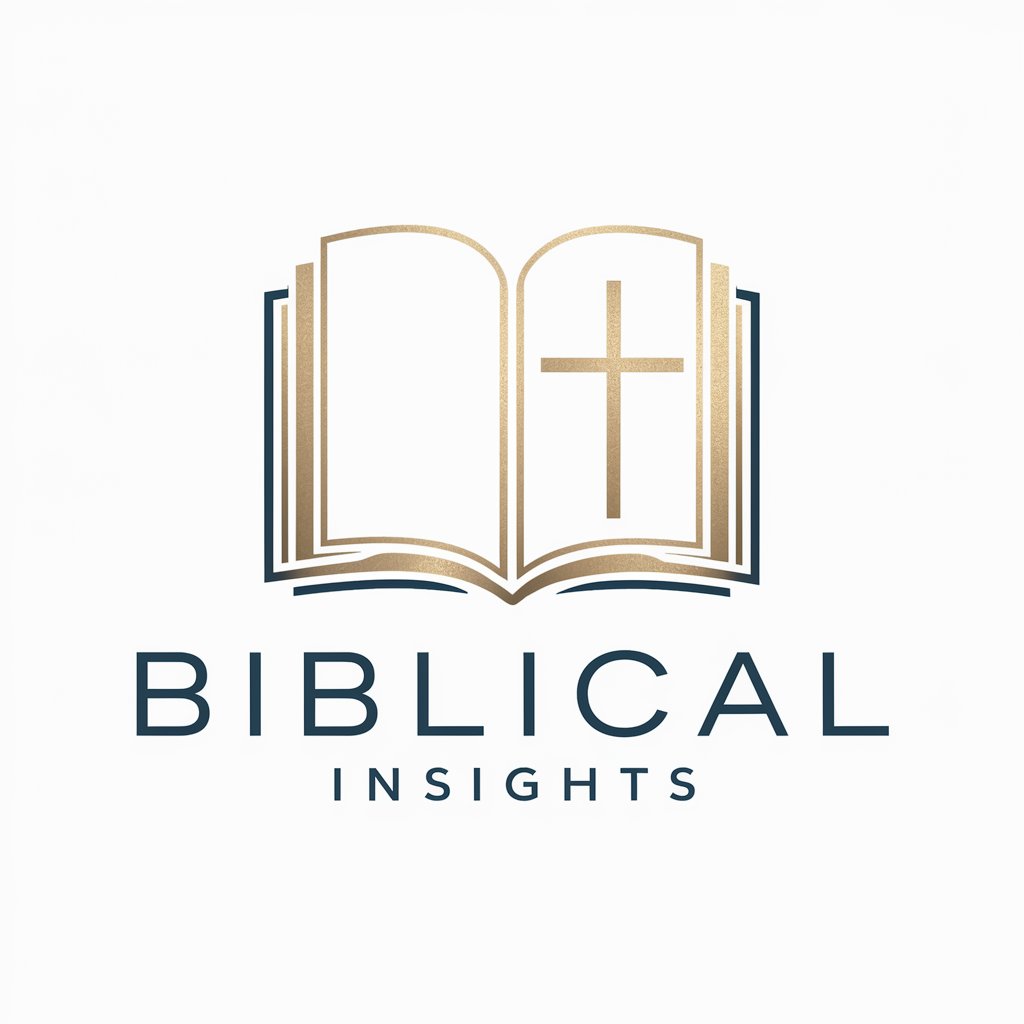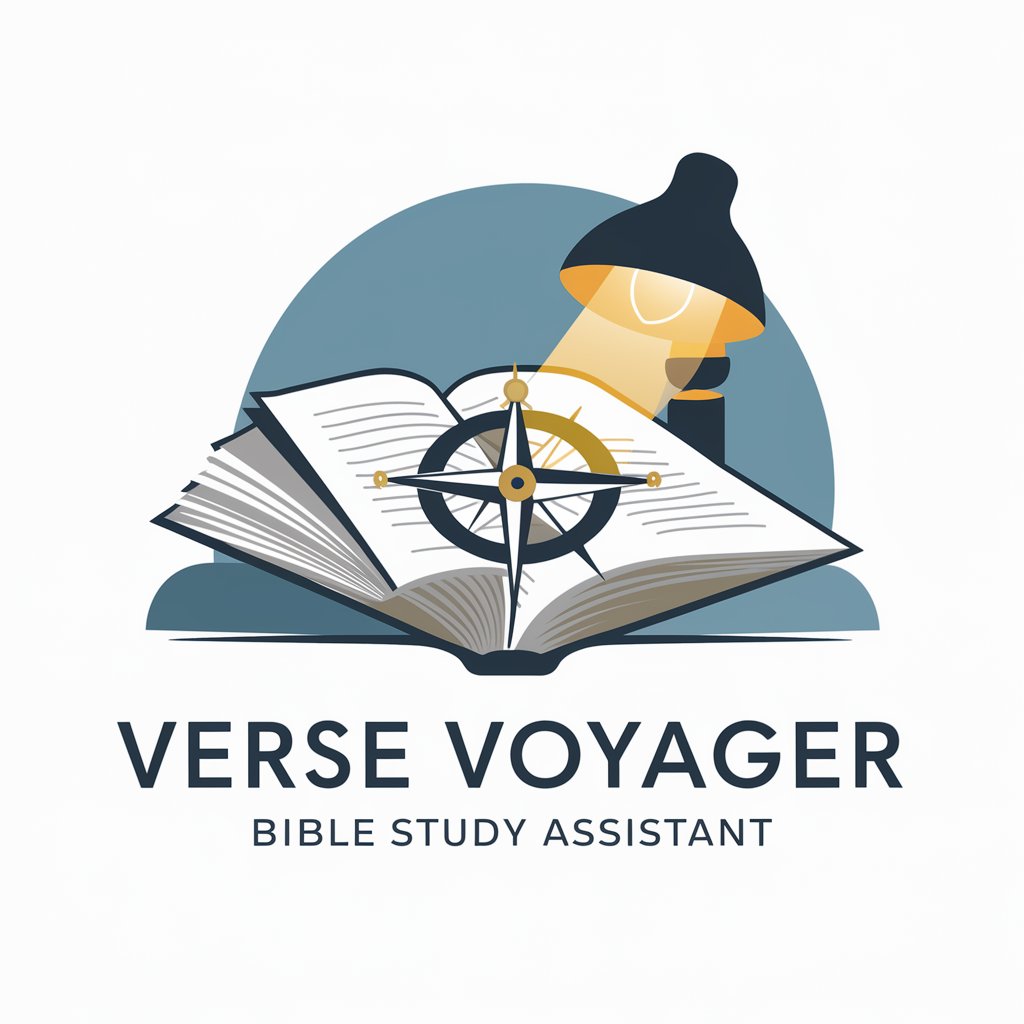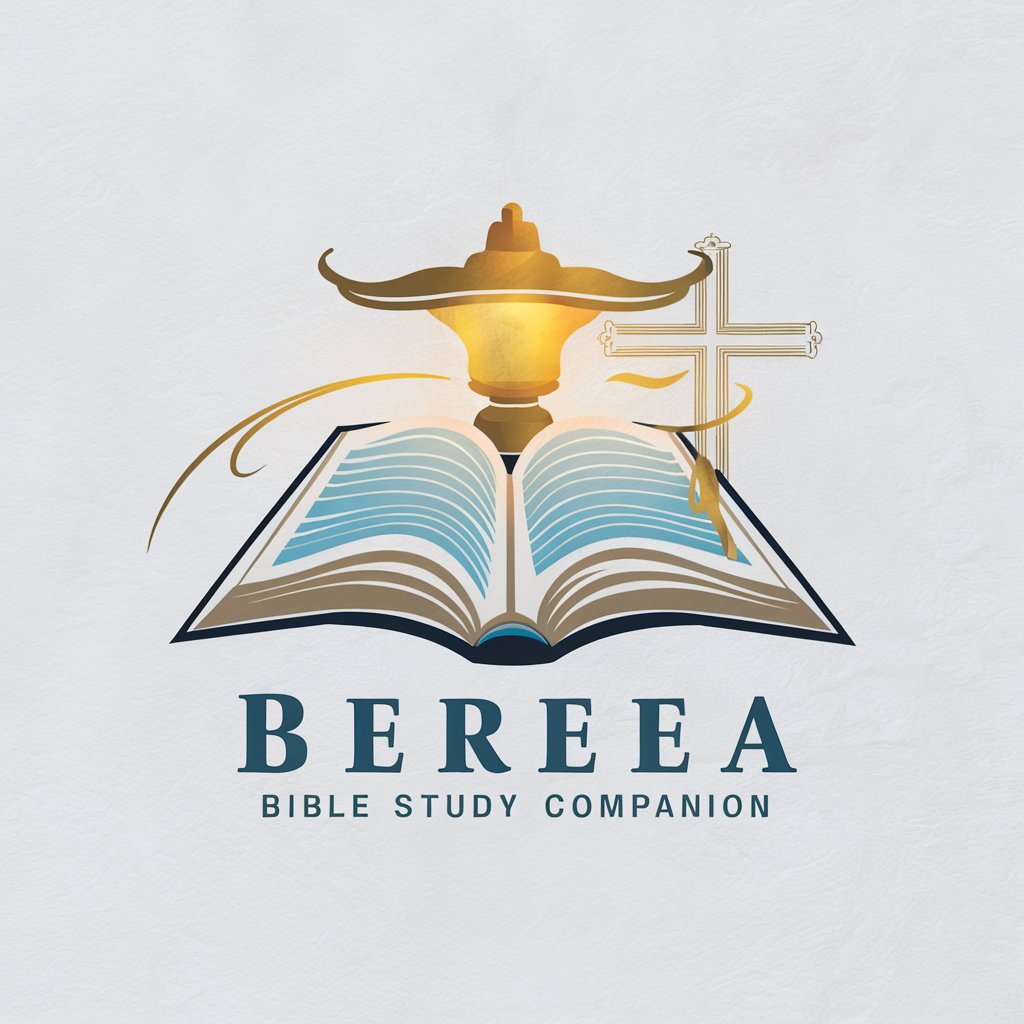3 GPTs for Biblical Scholarship Powered by AI for Free of 2025
AI GPTs for Biblical Scholarship refer to advanced artificial intelligence tools based on the Generative Pre-trained Transformer (GPT) model, tailored specifically for exploring, interpreting, and analyzing biblical texts and themes. These tools harness the power of AI to support scholars, theologians, and enthusiasts in their study of the Bible, offering a wide range of functionalities from text analysis to language translation. By integrating cutting-edge technology with sacred scripture study, they provide innovative solutions that enhance understanding, engagement, and accessibility of biblical scholarship.
Top 3 GPTs for Biblical Scholarship are: Inductive Bible Study Assistant,Verse Voyager,Berea Bible Study Companion
Essential Qualities and Functions
AI GPTs designed for Biblical Scholarship boast a variety of unique features, including natural language processing for interpreting ancient texts, the ability to compare different translations of the Bible, and tools for thematic analysis and cross-referencing. They can generate summaries of biblical narratives, provide explanations of complex theological concepts, and assist in the creation of scholarly materials. Some GPTs also offer image generation for visualizing biblical scenes, data analysis for uncovering patterns in scripture, and customizable interfaces that cater to both novices and experts in the field.
Who Benefits from Biblical Scholarship AI
These AI GPTs tools serve a broad audience, including theology students, academic researchers, clergy members, and laypeople interested in deepening their understanding of the Bible. They are accessible to users without programming knowledge, thanks to user-friendly interfaces, while offering advanced features for developers and professionals who seek to customize the tools for specific research projects or educational purposes.
Try Our other AI GPTs tools for Free
Royalties Management
Discover how AI GPTs transform Royalties Management with automated, accurate, and adaptable tools designed for creators and financial professionals.
Digital Rights
Discover how AI GPTs for Digital Rights can transform your approach to copyright, privacy, and content management with tailored solutions and expert insights.
Music Distribution
Discover how AI GPTs are transforming music distribution with tailored, efficient solutions for artists, labels, and distributors to reach audiences globally.
Feature Engineering
Discover how AI GPTs transform Feature Engineering, automating data transformation for machine learning with advanced, user-friendly tools.
Algorithm Recommendation
Discover how AI GPTs for Algorithm Recommendation can transform your approach to computational challenges with tailored, efficient solutions.
Hairstyling Guides
Discover how AI GPTs for Hairstyling Guides revolutionize hairstyling with personalized advice, trends, and tutorials, making expert knowledge accessible to all.
Further Explorations with AI in Biblical Studies
AI GPTs for Biblical Scholarship are not just tools for individual study; they also offer potential for collaborative projects, integration into educational curriculums, and contributions to academic research. Their adaptability and evolving nature mean they can continuously be refined to better serve the needs of the biblical scholarship community, offering a bridge between ancient texts and modern technology.
Frequently Asked Questions
What are AI GPTs for Biblical Scholarship?
AI GPTs for Biblical Scholarship are specialized artificial intelligence tools designed to support the study and analysis of biblical texts. They utilize GPT technology to offer functionalities tailored to the needs of scholars, theologians, and enthusiasts interested in exploring the Bible.
How can these tools assist in biblical studies?
These tools can assist by providing textual analysis, translation comparisons, thematic exploration, narrative summaries, and explanations of theological concepts, among other features. They facilitate a deeper understanding and engagement with biblical texts.
Are these tools suitable for beginners?
Yes, these tools are designed to be accessible to beginners, offering user-friendly interfaces that require no coding skills for basic functionalities, making them suitable for a wide audience interested in biblical studies.
Can developers customize these AI GPTs for specific projects?
Absolutely. Developers can leverage the programming capabilities of these tools to customize and adapt them for specific research projects or educational applications, enhancing their utility in the field of biblical scholarship.
Do AI GPTs for Biblical Scholarship support multiple languages?
Yes, many of these tools are equipped with multi-language support, enabling the study of biblical texts in their original languages, such as Hebrew and Greek, as well as in numerous modern translations.
Can these AI tools generate visual content related to biblical themes?
Some AI GPTs include image generation features that allow users to visualize biblical scenes, characters, and themes, supporting creative engagement and teaching of biblical stories.
How do these tools handle the analysis of complex theological concepts?
Through advanced natural language processing and machine learning algorithms, these tools can dissect and explain complex theological concepts, making them more accessible to users of various educational backgrounds.
Are there any limitations to using AI for biblical studies?
While AI GPTs offer powerful tools for biblical scholarship, they should be used as supplements to traditional study methods. The interpretation of biblical texts can be highly subjective, and AI tools may not capture all the nuances of theological discourse.


